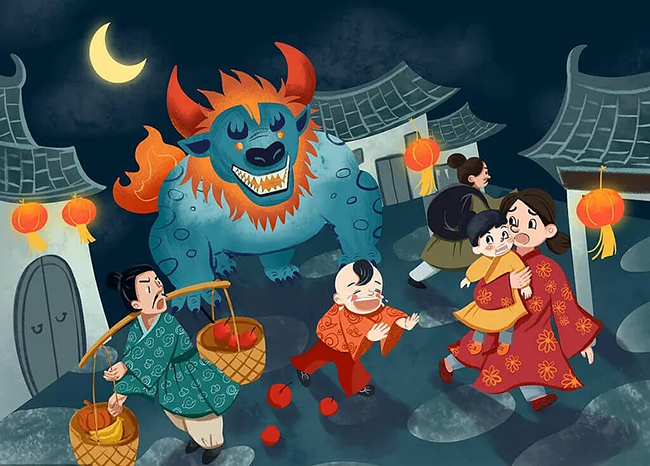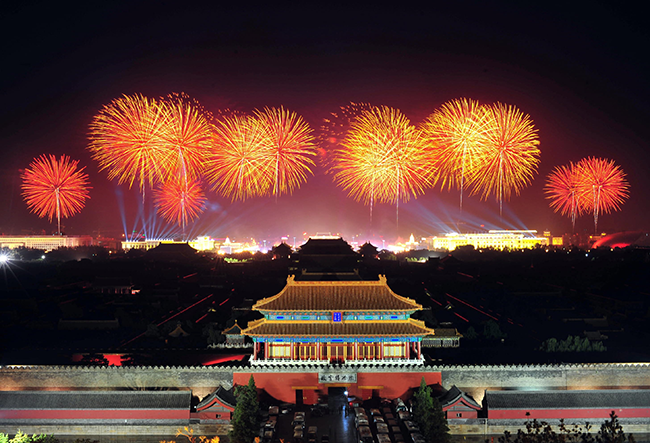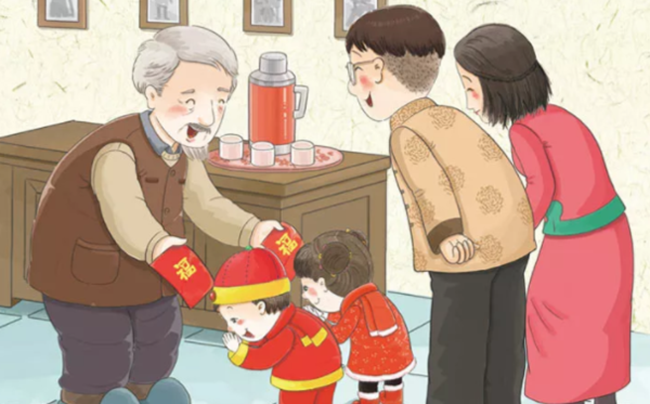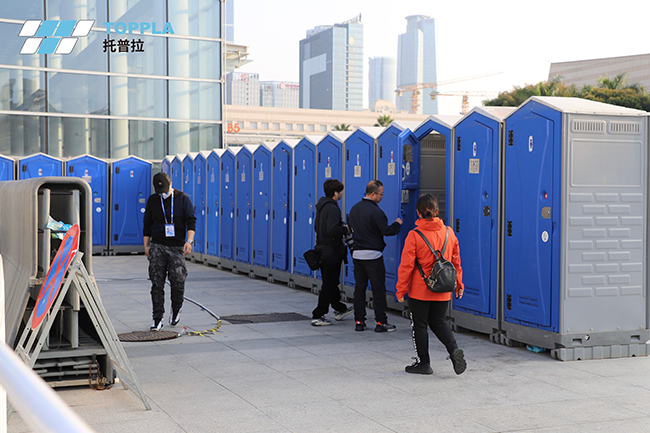Chinese New Year Holiday 2024
Chinese New Year, also known as Lunar New Year or Spring Festival, is the most important traditional festival in Chinese culture. It marks the beginning of the lunar new year and is celebrated by Chinese communities around the world. The date of Chinese New Year varies each year according to the lunar calendar, falling between late January and mid-February.
The origins of the Spring Festival, or Chinese New Year, are deeply rooted in ancient Chinese mythology,
folklore, and agricultural traditions. Several legends and historical events have contributed to the
development of this important festival:
Nian Monster: One popular legend involves the Nian, a mythical beast that would come out on the eve
of the new year to terrorize villagers, eating livestock, crops, and even people. Over time, the villagers
discovered that the Nian was afraid of loud noises, bright lights, and the color red. This led to the
tradition of using firecrackers, fireworks, and red decorations during Chinese New Year to scare away
evil spirits.

Celebrating the End of Winter: The Spring Festival originated as a way to celebrate the end of winter and
the beginning of spring, marking the start of a new agricultural cycle. It was a time for farmers to rest
after the winter harvest and prepare for planting in the spring
Worshiping Ancestors and Deities: Ancient Chinese societies believed in honoring their ancestors and
various gods and deities during the new year celebrations. Temples and ancestral altars were adorned
with offerings, and prayers were made for blessings, good fortune, and prosperity in the coming year.
Mythological Origins: The Spring Festival is also associated with mythological figures such as the Kitchen
God, who is believed to report to the Jade Emperor about the behavior of each household's members
before the new year. Families traditionally offer sacrifices to the Kitchen God to ensure favorable reports.
Emperor Worship: In imperial times, the Chinese New Year was also a time to pay homage to the
reigning emperor. People would express their loyalty and allegiance through various ceremonies and
rituals.
Transition of Power: Historically, the Chinese New Year was a time of political significance, often marking
the transition of power between dynasties or rulers. It was a time for new beginnings and the renewal of
social and political structures.
Folk Traditions and Customs: Throughout history, various regions and ethnic groups in China developed
their own unique customs and traditions surrounding the Spring Festival, contributing to its rich cultural
tapestry.
During Chinese New Year, families come together for reunion dinners, exchange gifts and red envelopes
containing money (known as "hongbao" or "laisee"), and set off fireworks and firecrackers to ward off
evil spirits. Each year is associated with one of the 12 animals in the Chinese zodiac, and celebrations
often include decorations featuring the animal of that year.
The festivities typically last for 15 days, culminating in the Lantern Festival, where lanterns are displayed
and people enjoy various cultural performances. It's a time for honoring ancestors, paying respects to
elders, and wishing for good fortune, health, and prosperity in the coming year. Traditional customs
include cleaning the house to sweep away bad luck, wearing new clothes to symbolize a fresh start, and
enjoying special foods such as dumplings, fish, and rice cakes.

Here are some key aspects of Chinese New Year:
Symbolism: Each year in the Chinese zodiac is associated with an animal sign, one of 12 in total. The
cycle includes the Rat, Ox, Tiger, Rabbit, Dragon, Snake, Horse, Goat, Monkey, Rooster, Dog, and Pig.
Each animal is believed to influence the personality traits of individuals born in that year. Each Chinese
New Year is associated with one of the twelve animals in the Chinese zodiac, which operate on a
twelve-year cycle. 2024, for instance, is the Year of the Dragon.
Family Reunion: Chinese New Year is a time for family reunions. Many people travel long distances to be
with their families during this period. It is common for people to return to their hometowns and
celebrate with their relatives.
Traditional Foods: Special foods are prepared for the celebration, each with its own symbolic meaning.
Dumplings, for example, are a traditional food eaten during the festival and are said to bring wealth and
good fortune.
Red Decorations: The color red is considered lucky in Chinese culture, and it is prominently featured in
decorations during Chinese New Year. Red lanterns, banners, and other ornaments are used to symbolize
good luck and prosperity.
Fireworks and Dragon Dances: Fireworks and dragon dances are traditional forms of celebration during
Chinese New Year. The loud noises of fireworks are believed to scare away evil spirits, and the dragon
dance is a symbol of power and good fortune.
Giving Red Envelopes (Hongbao): It is customary for married couples and elders to give red envelopes
containing money to children and unmarried relatives. This gesture symbolizes good luck and prosperity
for the recipients.
Spring Festival Gala: Many people watch the Spring Festival Gala, a televised variety show produced by
China Central Television (CCTV), which features a mix of music, dance, comedy, and other performances.
It is one of the most-watched television programs in the world.

Chinese New Year is not only celebrated in China but also by Chinese communities around the globe.
During this time, people participate in various cultural activities, such as dragon and lion dances, visiting
temples, and enjoying traditional performances. The festivities typically last for 15 days, culminating in
the Lantern Festival on the 15th day of the lunar new year. During this time, people participate in various
cultural activities, such as dragon and lion dances, visiting temples, and enjoying traditional
performances.
Pls note that we are going to have the Chinese New Year and our company will be closed from Feb. 5th
to Feb. 17th. And we will be back to normal work on Feb.18th.TOPPLA has long-term and stable
domestic and foreign partners, and has established stable sales channels at home and abroad to ensure
high-quality pre-sales and after-sales services.

TOPPLA has won the honorary titles of High-tech Enterprise, Fujian Province Science and Technology
Little Giant Enterprise, Fujian Province Intellectual Property Advantage Enterprise, Xiamen New Material
Enterprise, and AAA Credit Enterprise.Thank you for your support and trust. TOPPLA will continue to
provide you with high-quality mobile toilet products and perfect services.
TOPPLA wishes this year bring you joy, success, and fulfillment in all your endeavors. May you embrace
new opportunities, overcome challenges, and cherish moments of happiness with your loved ones.
Here's to a year filled with growth, prosperity, and endless possibilities. Cheers to a wonderful journey
ahead!





